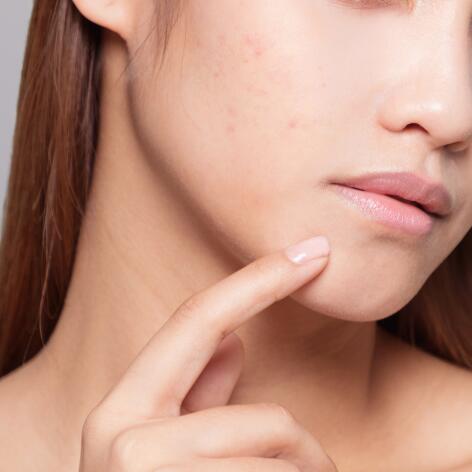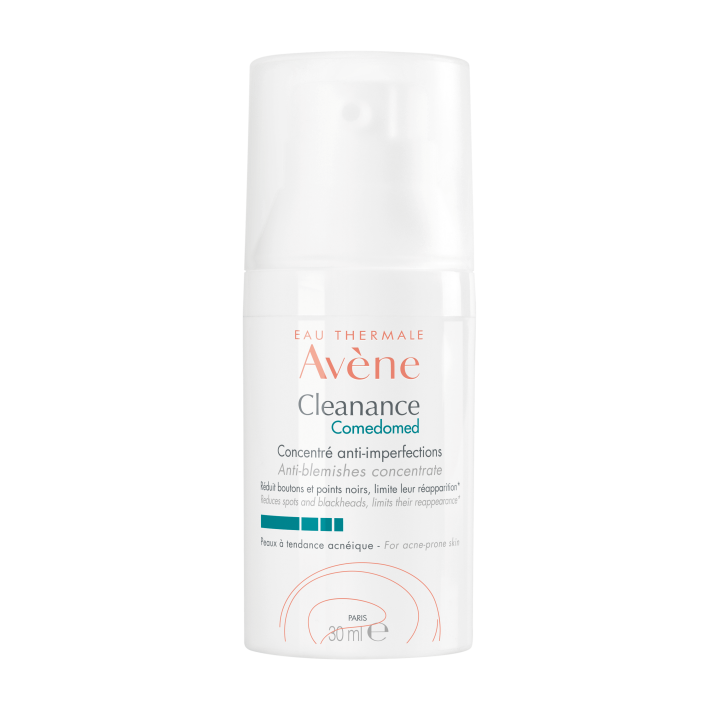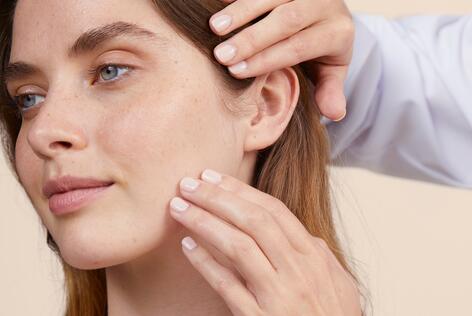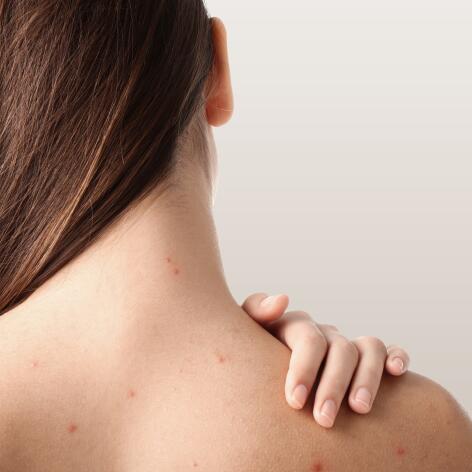Causes of acne
Causes of acne
Where does acne come from? You’ve probably already asked yourself this question. Most forms of acne (yes, there are several) are caused by fluctuations in sex hormones. But other factors, mainly around your environment and lifestyle, also come into play, both in adolescents and in women.
How hormones affect the skin
Hormonal variations, particularly androgens, result in an overproduction of sebum on the face and upper body. The cells in the walls of the pilosebaceous follicles and sebaceous glands multiply, preventing sebum from flushing. In other words, the skin pores become clogged and sebum accumulates below the skin's surface. The accumulation of sebum is responsible for the formation of comedones: the famous blackheads and whiteheads. These hormonal changes may occur in puberty or during the menstrual cycle in women.


Exogenous (i.e. external) factors can also trigger the onset of pimples.
- Using cosmetics that are too greasy, occlusive or comedogenic can block the pilosebaceous follicles, encouraging spots to appear.
- Under the effect of the sun, the skin thickens and dries out, which initially reduces pimples. However, this is deceptive: as soon as sun exposure decreases, the skin becomes thinner and sebum is produced again in a higher quantity. The result is an outbreak of new lesions.
- Acne is not a psychological disease, but stress is a contributing factor. So how does stress contribute to acne? The mechanisms are still unclear, but the production of hormones linked to stress also increases the production of sebum.
- Smoking promotes dermatosis (a skin condition) and particularly aggravates scars.
- Eating too much fat and sugar also has an impact on the skin. Eating sweets in particular increases the development of acne in individuals who are susceptible. Why is this? Foods with a high glycaemic index are believed to promote the production of certain hormones, including androgens, which are involved in the formation of blackheads.
- Finally, in some cases, acne can be triggered by certain medications.
FRIENDLY (AND EXPERT) ADVICE
While twice-daily hygiene through make-up removal or cleansing is essential, "scrubbing" the face with an overly aggressive exfoliator can dry out the skin, encouraging reactive seborrhoea, i.e. increased sebum production. The same recommendation applies to exfoliation: use a gentle exfoliating mask once or twice a week, but not more. A gentle approach will give better results!
Our answers to your questions
We’re here to help you sort fact from fiction
True. If several members of your family have suffered from acne, particularly severe acne, this increases your risk of developing the condition. Although genes are not a systematic cause, they are a contributing factor. In any case, you’ll get the best results with prompt treatment, especially by a dermatologist.
True. Certain pollutants in the air can oxidise the squalane present in the sebum, produced by the sebaceous glands. This oxidation stimulates the production of comedogenic molecules in the epidermis. As a result, pimples form. Good skin hygiene is therefore essential to combat the effects of pollution on the skin.
This is false. Sometimes the use of certain conditioners or styling gels can cause acne pimples to appear, especially on the forehead. These products can also run onto the forehead or neck and cause the skin to react.
True. At the beginning of pregnancy, the body’s hormonal balance is very disturbed. This is why acne can often occur. The acne tends to subside and disappear quickly after delivery.
Our solutions for taking care of your acne-prone skin
Our Cleanance skin care products are designed to reconcile you with your skin
Cleanance Comedomed Anti-Blemish Concentrate
It’s a small miracle for my skin: it’s helped a lot with reducing my imperfections in two months. It's been really beneficial! Can't wait to see the result in a few more months and hope that it will make them disappear for good.
MORE
Newsletter
We’re always here for your skin!
All our tips for taking care of your skin day to day.

Which skin care routine should you adopt?
Identify what it really needs with the help of our experts and discover the most suitable skin care routine for you.


